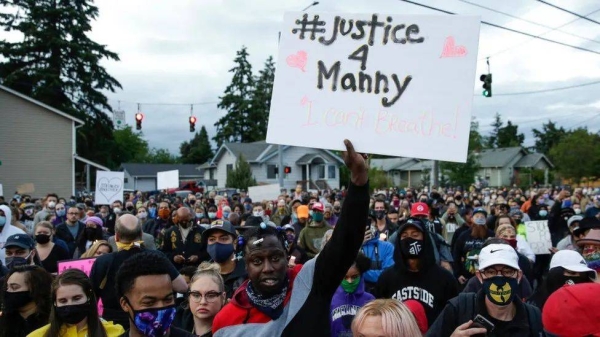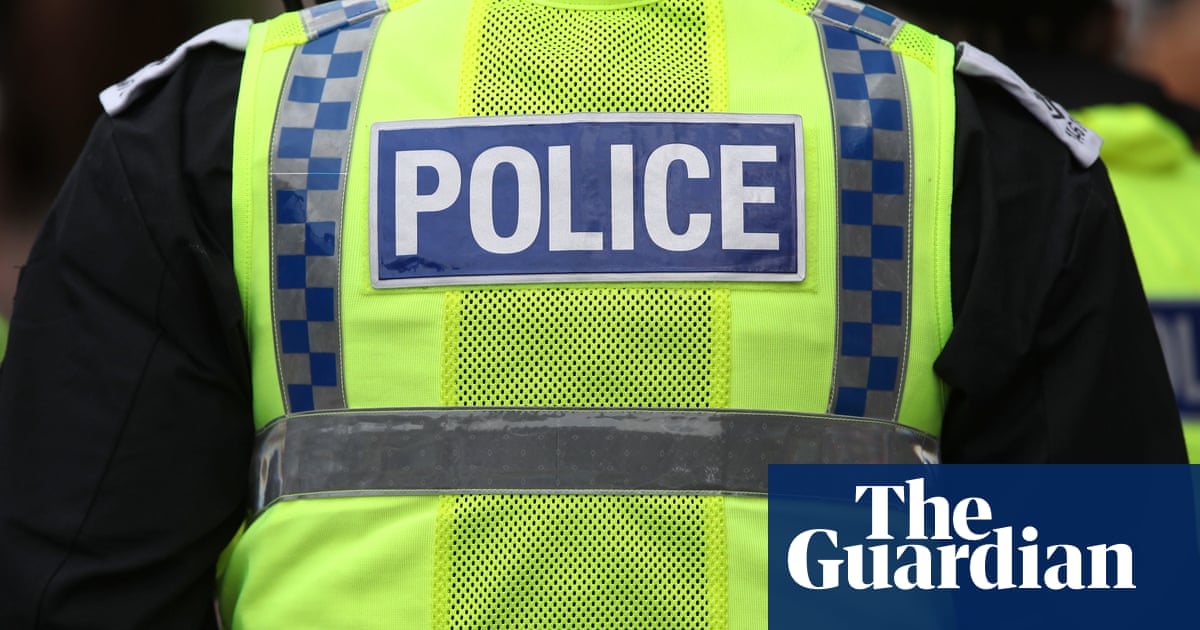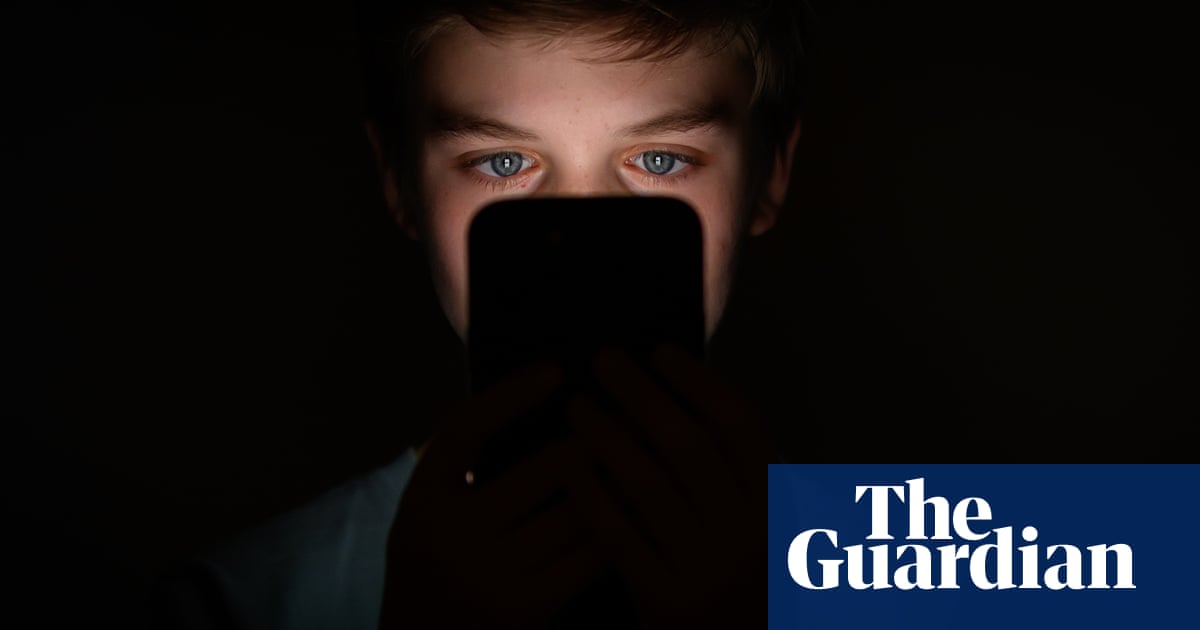
The police stop of the Labour MP Dawn Butler was rooted in systemic racism that is damaging the legitimacy of policing, the leader of black police officers has said.
Inspector Andrew George, the new interim president of the National Black Police Association, also called for urgent reform of “a biased system that views black people as criminals or drug dealers”.
George questioned the grounds for the stop last Sunday in east London, after police said said they had wrongly noted the car’s registration plate and believed it to be registered to northern England. He said: “I would ask why a vehicle being registered in Yorkshire and driving in a global hub like London is enough, by itself, to warrant checking the owner details.”
In his first interview since taking his role last month, George told the Guardian that policing was growing further apart from people, especially the Metropolitan force that covers London.
George added that tactics such as handcuffing people during stop and search leads to trauma for some and a community perception of a “bullying mentality” among officers.
On Thursday, the Met commissioner, Cressida Dick, said the force was no longer institutionally racist. But George disagrees, pointing to official statistics and experience of communities, and said the leadership of policing should acknowledge continuing problems with race.
Policies and processes, rather than prejudice among individual officers, were key causes of the race crisis that policing now faced, he added, and that was illustrated last Sunday.
Met officers in east London stopped a BMW driven by a black friend of Butler with the MP in the passenger seat. It was the third time she had been stopped by the Met, and her male friend was stopped regularly, she said.
The Met insists that the officers did not know the occupants of the car were black.
George praised officers for being “courteous” but not for the systems and processes behind the stop. He said: “It was rooted in a biased system that views black people as criminals or drug dealers.
“The very fact that the officer took the keys from the driver further reinforces the perception that they believed there was something suspicious which may have prompted the driver to make off from them.
“It was heartening to see the officers speak with the occupants in a respectful and courteous manner, but we have to look at the processes which led to the stop being conducted.
“Training, briefings and culture all contribute to racial profiling and we have to acknowledge the hurt the black community is currently feeling and respond robustly to the consistent disproportionalities we see in police use of powers.”
The National Black Police Association was established as part of the response to the 1999 Macpherson inquiry into the police failings that let Stephen Lawrence’s killers go free, and made the landmark finding of institutional racism.
Last week, Stephen Lawrence’s parents were dismayed and hurt when the Met announced the end of the active hunt for at least three of his racist killers, left free since 1993 by errors that Britain’s biggest force spent years denying.
British police have faced renewed concerns about their race record since this summer’s mass anti-racism protests, mostly under the banner of Black Lives Matter, when more than 250,000 people took to the streets across the UK.
George said police were still more likely to view ethnic minorities as offenders than people needing help: “Institutional racism is alive and kicking in British policing. It’s more centred around the systems and processes rather than in the individual officers.
“I do not believe that the vast majority of officers up and down the country are going out targeting black males in particular. I believe that they feel they’re doing the right thing in trying, in their head, to stop violent crime.”
Stop and search has been the main flashpoint, and concerns about innocent people being handcuffed. Across England and Wales the last official figures showed that black people were nine times more likely to be stopped, and it is a particularly tender issue in London, because it is a tactic that the Met favours, conducting 48% of all stops in England and Wales.
But George said the police, and especially the Met, were getting it wrong too often. “I support stop and search. I have used it many times myself … We’re almost basing it on postcodes and ethnicity,” he said, and not on the legal standard of reasonable suspicion of an individual.
George said he had spoken to innocent young people left “traumatised” after being handcuffed during a search, with people perceiving “almost a bully mentality” setting in as they are surrounded by officers in the street and their pockets searched.
He said: “I think there’s almost an acceptance that, particularly, black males are more aggressive, more violent and therefore need to be the handcuffed at an early stage –80% plus of stops find nothing, particularly around violence and weapons.”
George is a former firearms officer and commander for the Police Service of Northern Ireland, which still faces an enduring terrorist threat. He said policing London was tough, but no tougher than in Northern Ireland, whose police service was more sensitive to its communities while coping with high levels of violence and threat.
He said: “London is a challenging environment, but so is Northern Ireland. I have to check under my car every morning for a bomb. I have to bring my firearm home with me to protect myself and my family.”
He said the Met was starting to lose legitimacy, particularly among black communities, and the ability to “police by consent”, the very philosophical pillar British policing prides itself on.
Previous Met leaders have privately feared such a loss of legitimacy if their race record did not improve. George said: “I wouldn’t say that it’s [the Met’s legitimacy] completely gone. And I don’t think anything is ever irreparable. Whenever you stop being legitimate in certain communities, that creates a vacuum.”
The Met said it followed national guidance on handcuffing and said it had made colossal improvements since Macpherson’s findings: “In 2020, we do not believe the Met as an organisation is failing to provide an appropriate service to people because of their colour, culture or ethnic origin. Nor do we believe the Met and our officers are prejudiced, ignorant, and thoughtless and carry out racist stereotyping.
“We recognise the concerns and anger some members of our communities have about how we police London and we continue to engage with Londoners on how to increase public confidence.”












